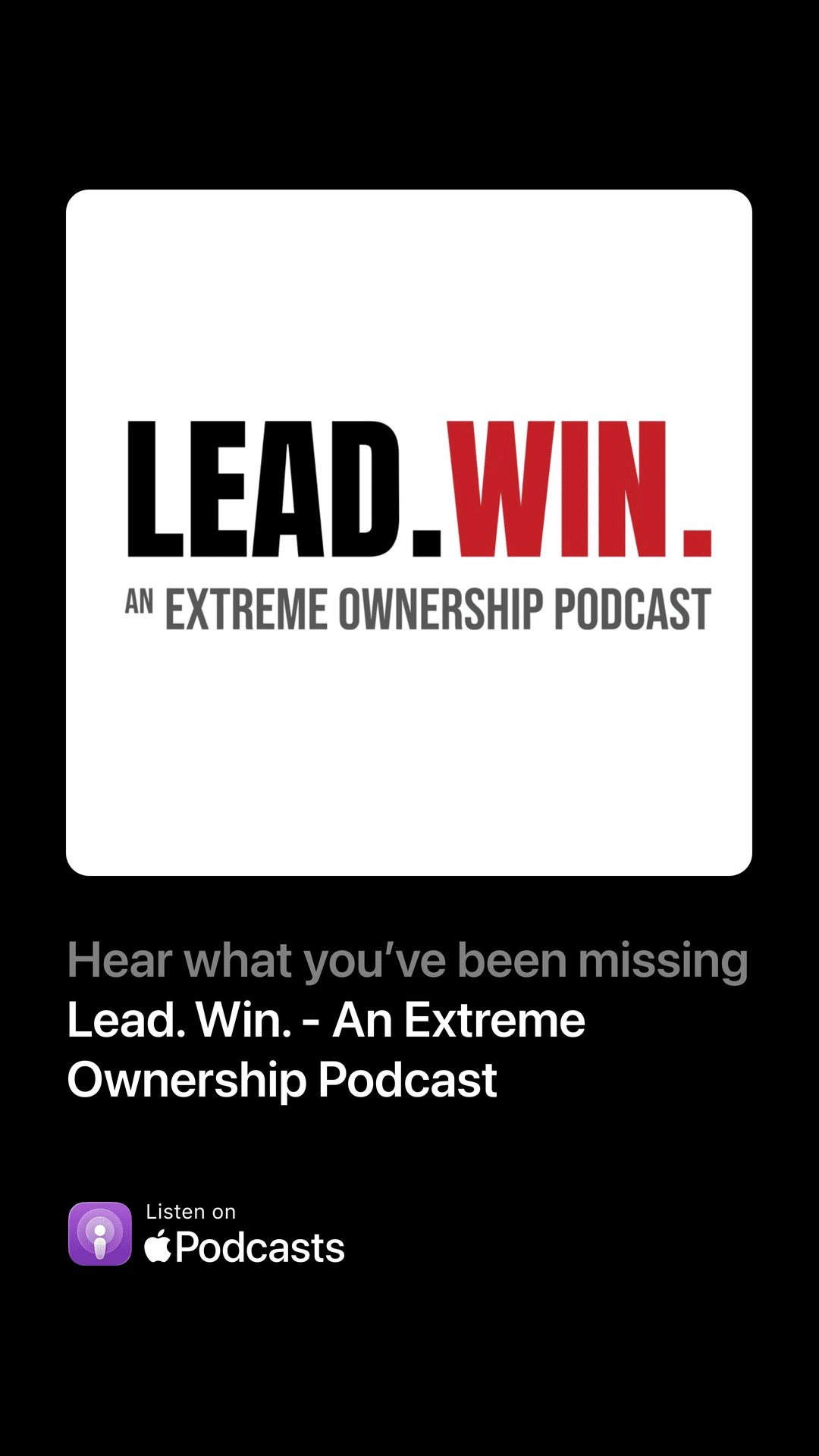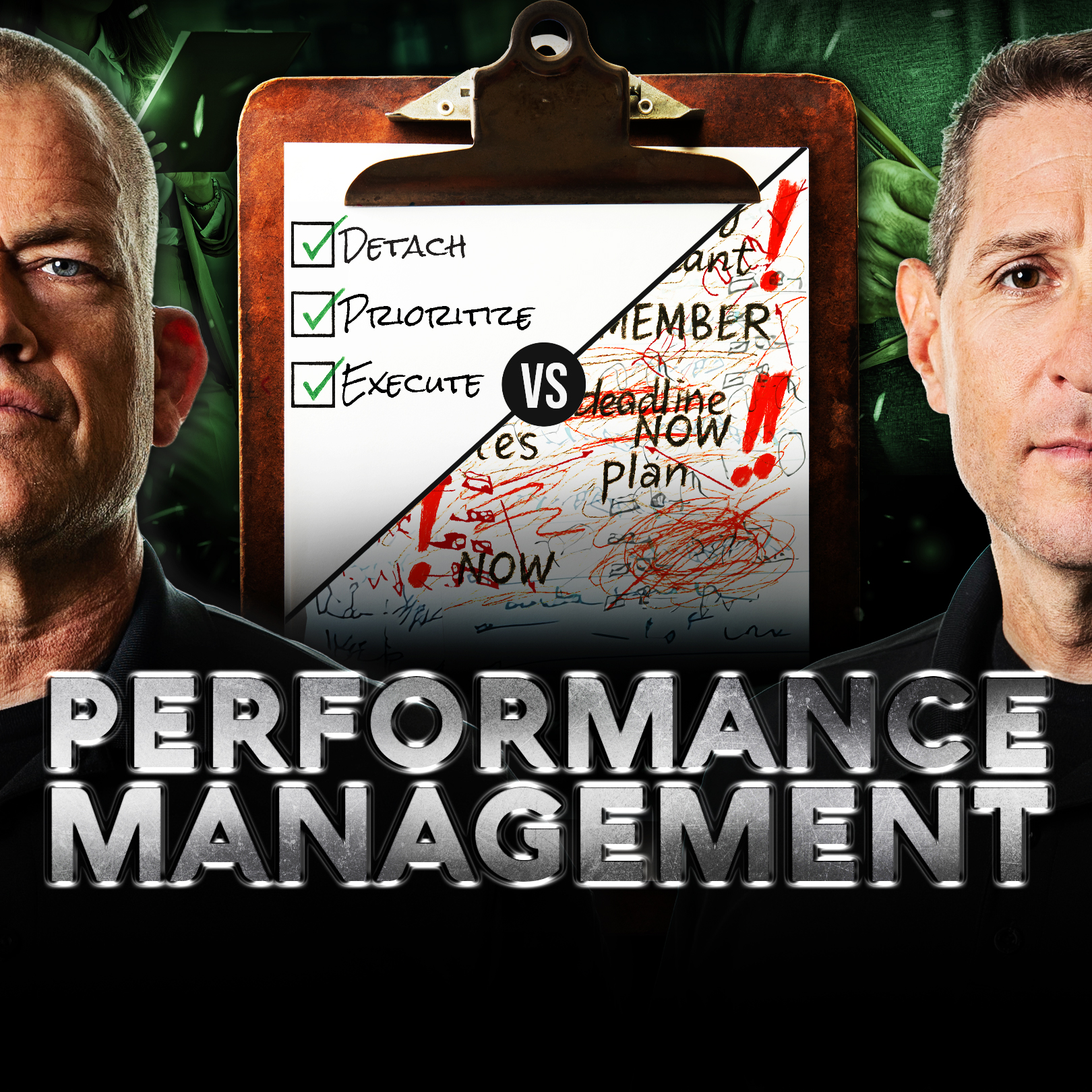Accountability Works Best When Directed at Yourself. When People Hold Themselves Accountable, the Team Wins.
One of the most common questions we hear from the leaders we work with at Echelon Front is: How do you hold people accountable? It’s a common complaint for people to demand more accountability from the people with whom they work. “There is a lack of accountability here,” they tell us. “We need to start holding people accountable.”
Such comments are often accompanied by complaints of individuals or teams within the organization who are underperforming or falling short of the perceived standard. Of course, everyone wants to aim the weapon of accountability at everyone else—never themselves.
Accountability is a tool to get people to comply. It carries the idea that there will be consequences for underperformance: punishment; counseling; loss of pay or privileges; maybe someone will even get fired.
In the military, this might be a “stern talking-to behind the milvan [shipping container].” Accountability is a tool, but it should be used only as a last resort.
How Do You Hold People Accountable?
In Extreme Ownership, we wrote: “It’s not what you preach, it’s what you tolerate.” A leader must hold the standards of performance high. If you tolerate substandard performance and there are no consequences, then that substandard performance becomes the new standard. But the hardest place to apply this—and the most important—is in yourself. Instead of asking, “How to hold people accountable?” ask yourself, “where can I take more ownership myself?”
What do you tolerate in yourself that you shouldn’t? If your people aren’t performing the way you need them to, what can you do to better train and prepare them to succeed? Where are you setting a poor example for the team? Where are you making excuses for yourself and rationalizing substandard performance while critiquing others?
When you start to let things slip, that can become a slippery slope and your own substandard performance becomes the new standard. If you want to know how to hold people accountable, start with you.
How to Hold People Accountable: Hold Yourself Accountable
The right way to hold people accountable is this: instead of threatening to hold people accountable, aim the weapon of accountability at yourself. Hold yourself accountable for not explaining why the standards of performance, or the process, or the safety procedures, or showing up on time, or whatever thing that people are working on is important, and what the consequences are for getting it wrong. When people understand why it is important, they will hold themselves accountable. That is the most effective method of how to hold people accountable.
Accountability is a Crutch.
Some leaders use accountability as a crutch to put the blame for substandard performance on others. Rather than threaten to hold people accountable, it is far better to create a culture where the team understands why high standards of performance must be maintained—and what is at stake if standards slip. Such a team will hold themselves accountable.
When people are threatened with punishment, they will likely perform to the expected standard only while the boss looks over their shoulder. But as soon as the boss is elsewhere, they go back to doing what they’ve always done.
If people understand WHY it’s important, how it will benefit the team, and benefit them, or the negative consequences to the team and the mission, they are far more likely to hold themselves accountable without any oversight from their chain of command.
If you’ve been frustrated seeking better solutions for how to hold people accountable, this is the most effective way. Start by setting the example and demonstrating accountability yourself in order to set the standard for your team.
Create a Culture Where People Hold Themselves Accountable
Far more powerful than you or your boss holding people accountable is building a culture where people hold themselves accountable. When you take ownership of your team’s or someone else’s underperformance and explain the why, provide support, training, and guidance, you will create a team of leaders at every level that holds themselves accountable.
Now You Know How to Hold People Accountable
Whenever you are frustrated with a lack of accountability and want to hold others accountable, remember that a culture of accountability all starts with you holding yourself accountable. That is the power of Extreme Ownership. How do you get others to take ownership? You take ownership.
When you take ownership and implement solutions to communicate more effectively, better train and mentor others, and explain why maintaining standards of performance, timelines, and sticking to the budget are crucial, then you won’t have to hold people accountable. Because they will hold themselves accountable. But that doesn’t happen without practice and repetition until Extreme Ownership becomes habit.
Knowledge means nothing if you don’t take action to improve your leadership skills. You can’t become a great leader just by reading an article, or sitting through a workshop, or reading one book. It takes daily effort. You have to do the work.
Consistent daily discipline is the path to victory. Extreme Ownership is the guide down that path. If you find yourself reading this article, you are not alone.
At Echelon Front, we’ve helped thousands of men and women just like you. If you’re tired of being frustrated with others and asking that same question, “How to hold people accountable,” then you are at the right place. The key to progress is action.
Here’s what I want you to do now: Click this link and visit Extreme Ownership Academy, our online resource for leadership development for people just like you who want to learn how to build a culture of accountability within their team.




